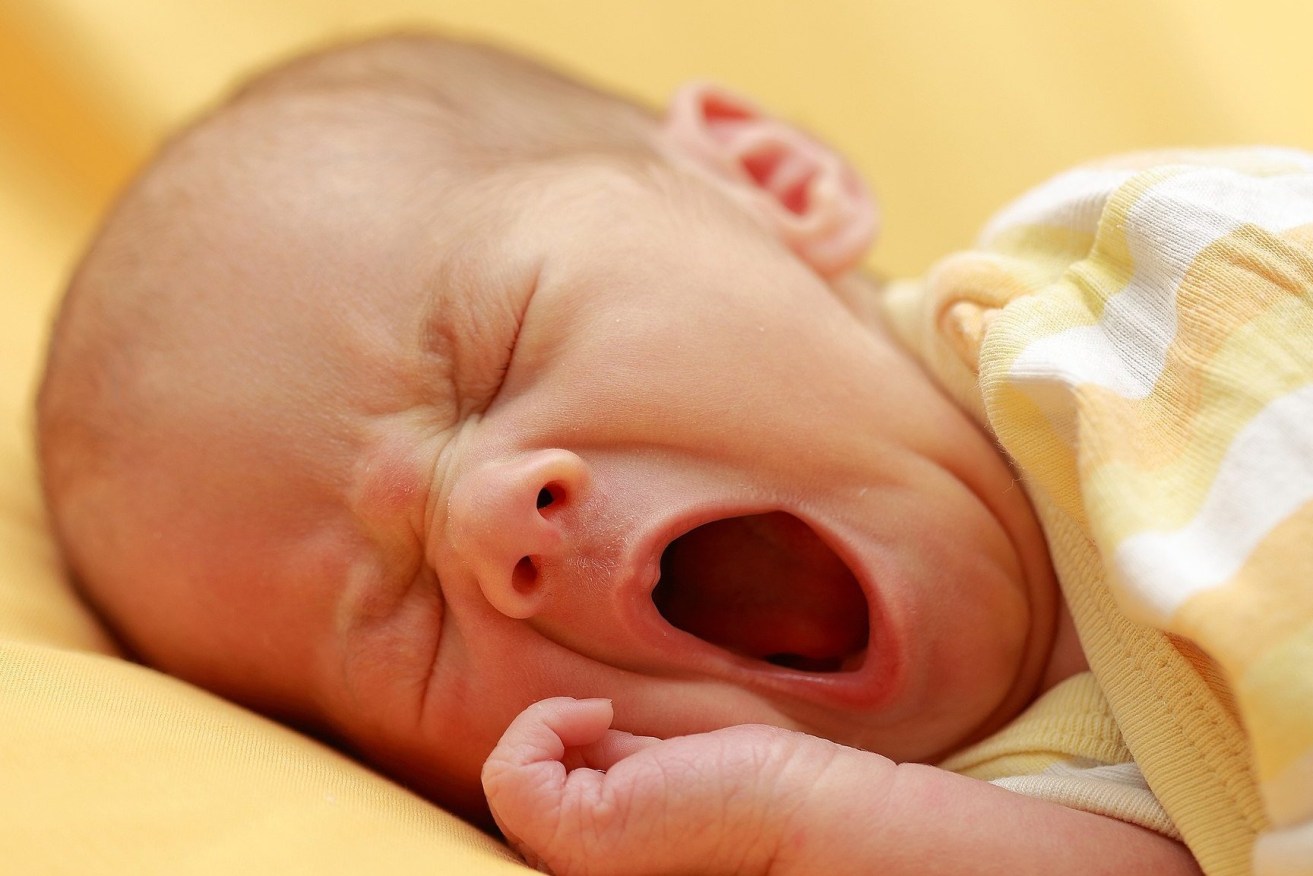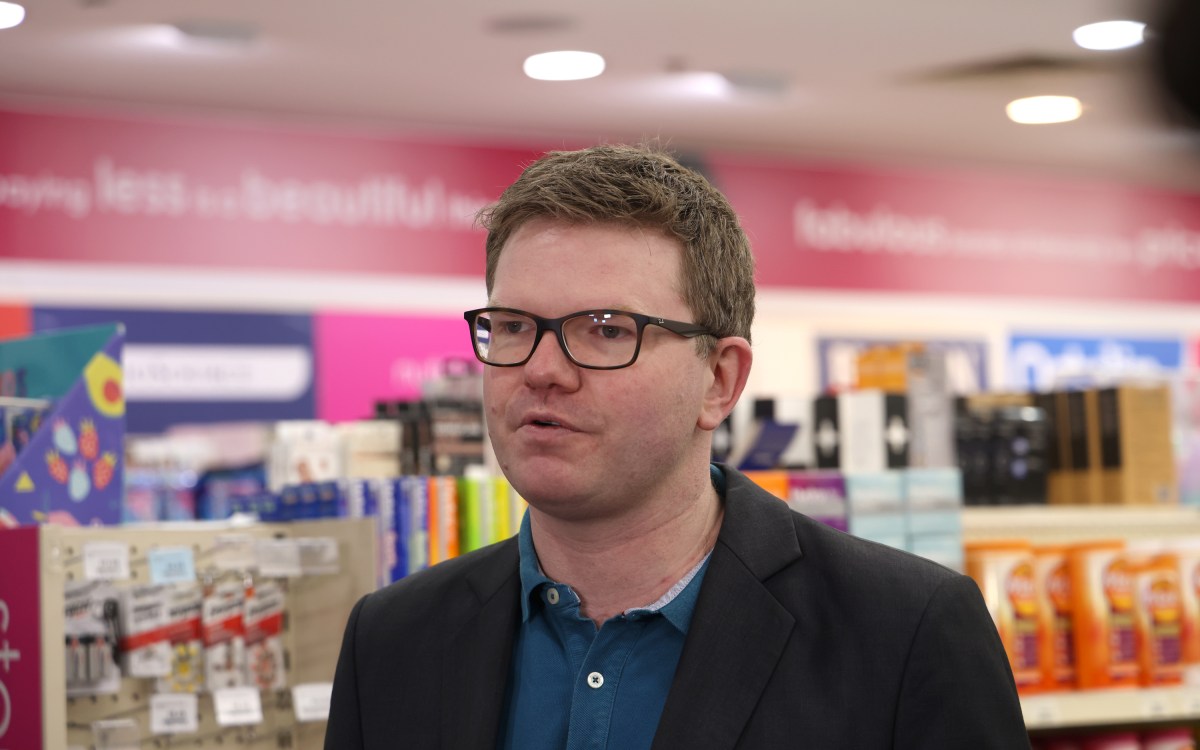SA baby gene tests on the health horizon
South Australians can expect to see their babies’ genes tested at birth in the future, as the State Government launches a process to make local researchers integral to the global genetic revolution.


A new SA research paper predicts genomic sequencing of babies is likely to be undertaken at birth in the next 10 to 15 years. Photo: Wikimedia by Martin Falbisoner
Health Minister Chris Picton today launched South Australia’s first Health and Medical Research Strategy Green Paper to outline ways the state can be at the forefront of “monumental changes to the delivery of healthcare in the next 10 to 15 years”.
The paper said South Australians could expect those changes to include genomic sequencing being undertaken from birth to check babies’ risks of contracting diseases like cancer or cystic fibrosis, as the health system shifts its focus to “prevention and diagnostics”.
It also listed the emergence of the “virtual nurse” in the local health systems’ workforce and more artificial intelligence, precision medicine and robotics being used in specific treatments and diagnostics.
The discussion paper was crafted with more than 100 key members of the state’s health and medical research sector, including Women’s and Children’s Health Network Clinical Research Director Professor Helen Marshall.
Marshall was named SA Australian of the Year in 2022 for her work in public health and infectious diseases, including world-leading work around meningococcal that delivered the first evidence of a vaccine creating herd immunity protection in adolescents.
The study led to SA in 2018 being the first place in the world to introduce a life-saving meningococcal B vaccine program for infants and adolescents.
“Research profoundly impacts the lives of individuals and society and is most effective when embedded into health services and policy,” she said.
Picton said the health and medical research paper is open for consultation until October 27, with a strategy finalised by early next year to make SA a leader in health and medical research by slashing the time it takes for research to result in medical breakthroughs.
“We have many world-leading researchers here in SA, but we want this sector to grow and seize new opportunities like artificial intelligence,” he said.
“High-quality health and medical research benefits our state by allowing South Australians faster access to cutting edge trials and technology.”

Health Minister Chris Picton. Photo: Tony Lewis/InDaily
Picton said the health system is already adjusting to global challenges including a post-pandemic economy and global recession, climate change and natural disasters, an increasing burden of disease plus threats of cybercrime and workforce shortages.
The paper looks to build a framework to tackle these challenges alongside an economic and higher education strategy that could benefit from the potential merger of the University of Adelaide and the University of South Australia.
“Greater support is needed to promote and accelerate the commercialisation of health and medical research in South Australia to nurture growth of spin offs and early-stage start-up companies with high-growth potential,” the paper said.
“Bolstering clinical trials activity has been identified as an opportunity and an early enabler of economic growth.”
The paper also said that in areas where SA cannot compete globally in discovery research, it could position itself to “support new discoveries to be tested”.
An SA Health spokesperson said SA was small enough to facilitate strategic collaborations and partnerships, and rapid acceleration of research translation into practice, and large enough to drive research excellence.
The organisation of its health system and innovation precincts also provides “a highly desirable foundation to undertake comprehensive, cross disciplinary health and medical research initiatives”.
Science and technology advancements are already seeing increasing use of robotics in the health system – pharmacy robots are already operating in some SA hospitals to increase productivity and can reduce error in drug management.
SA Health said robotics could potentially be used more in “assistive technologies” – coupling robotics with sensors that allow improved control of artificial limbs and other components in person’s environment.
While genomics testing involving gene examination to identify variants that can affect a person’s health is already undertaken in SA to diagnose conditions, from November a reproductive carrier screening test has been approved to be funded by medicare.
This can identify the risk of a couple having a child with a serious inherited disorder prior to conception.
“Through valuable research we are better able to understand the community we serve and identify pathways to reduce health inequalities as well as save and improve lives,” SA Health executive director for strategy and intergovernmental relations Skye Jacobi said.
[solstice_jwplayer mediaid=”zFh4QHrx” playerid=”Meorb6nj” caption=”Sponsored video – The Post” /]




